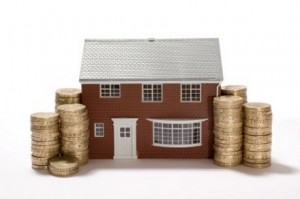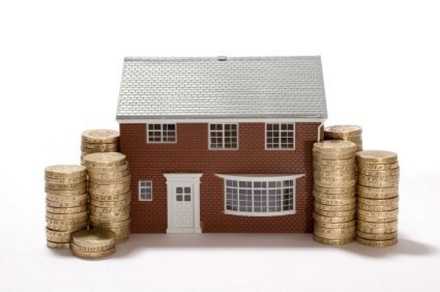Home ownership is all but a pipe dream for many people, with 42% of UK renters confessing they cannot afford to save for a deposit, according to new research carried out by flat and house share website SpareRoom.co.uk.
 |
| [relatedPosts title=”Related Posts”] |
|
|
Even those renters who do have money to put aside for a deposit are a long way off achieving their goal. More than a third (35%) of renters polled said they are currently saving for a deposit. However, of those, 42% have saved less than £5,000, while the average deposit saved is £12,125, just 7.3% of the average UK house price of £165,738.
With most lenders requiring at least a 20% deposit, this means that based on the average UK house price of £165,738, a deposit of more than £33,000 is required to even qualify for a mortgage – that’s over £20,000 more than the average renter has managed to save.
And with renters having to cover rising bills, it doesn’t look like getting any easier in the near future. Deposit funds are being eroded, with 15% admitting to regularly dipping into their savings to cover rent or bills. While, another 20% have used their savings pot to pay for holidays.
Amongst the under 30s, a whopping 60% admit they have had to dip into their savings, while a major hurdle for graduates looking to buy is paying off existing student loans, with almost a half (48%)of respondents still owing more than £10,000 in university debts.
But while Britain has traditionally been a nation of aspiring property buyers, the survey reveals that we are divided on whether staying in rented accommodation is necessarily a bad thing, with almost a half (48%) admitting they would be happy to rent long-term if only there was less pressure in the UK to own a home.
However, the survey also reveals that with rents rocketing in the past year, UK renters have seen the percentage of their wages spent on rent increase significantly. Just over one in seven (13%) of respondents spend more than two thirds of their take-home pay, after tax and deductions, on rent. While one in five (20%) say half to two thirds of their pay goes on rent.
Although eight out of ten (79%)of those polled describe themselves as employed professionals, 39% blame the huge deposit – typically around 20-25% – required by lenders as the main reason preventing them from being able to get onto the property ladder. Almost a fifth (19%) say house prices are simply too high.
So it should come as no surprise that 17% believe it will take them longer than a decade to be in a position to buy, while another 19% say they can never envisage getting on the property ladder. Just over a quarter (26%) are fairly optimistic, saying it will take them between two and four years, whilst almost a third (30%)say it will take five to ten years.
Matt Hutchinson, director of SpareRoom.co.uk, said:
“As a nation, we have always aspired to be homeowners at some point in our lives, but how realistic are those aspirations? In truth, home ownership may simply never be attainable for future generations, and peoples’ attitudes towards renting long-term may need to change.
“A significant proportion of the people we polled expect to live in rented accommodation for at least five years, and many believe it will be much longer than that. If attitudes towards home ownership relaxed in the UK, people might even be prepared to rent rather than buy for the long-term, as is the norm in parts of Continental Europe.
“The facts speak for themselves, soaring living costs mean it’s a struggle for many households just to keep their heads above water each month, let alone have enough spare cash to put aside towards a deposit. The survey shows that even those who are squirreling away funds have not managed to save anywhere near enough to buy the property they want.
“What’s clear is that something has to change. House prices need to fall, mortgage lenders need to offer more assistance to first time buyers with higher loan to value mortgages, and the Government has to accept there is a need for more affordable housing to purchase and affordable rental properties available privately or through housing associations.”
Further Information
Methodology
Spareroom.co.uk surveyed 2,000 people from across the UK on their housing situation and property purchasing plans. The results were collected in June 2012.
1. To get £12,125 as average deposit saved, we took into the account the fact that 35% were saving for a deposit.
The 35% who are saving for a deposit were asked: How much have you saved so far?
Responses:
Under £5,000 – 42%
£5,000 – £9,999 – 24%
£10,000 – £14,999 – 11%
£15,000 – £19,999 – 4%
£20,000 – £29,999 – 9%
£30,000 – £60,000 – 11%
To work out the average deposit saved by all respondents, we used the midpoint for each bracket e.g. £2,500 for the “under £5,000” category.
Calculation: {(0.42*350)*2500+(0.24*350)*7500+(0.11*350)*12500+(0.04*350)*17500+(0.09*350)*25000+(0.11*350)*45000}/350 = £12,125
2. Average house price in June 2012 according to Nationwide was £165,738
http://www.nationwide.co.uk/hpi/historical/June_2012.pdf
3. Question: After tax and deductions, how much of your take home pay do you spend on rent?
Responses:
Up to a third – 30%
A third to a half – 37%
Half to two thirds – 20%
More than two thirds – 13%
.





